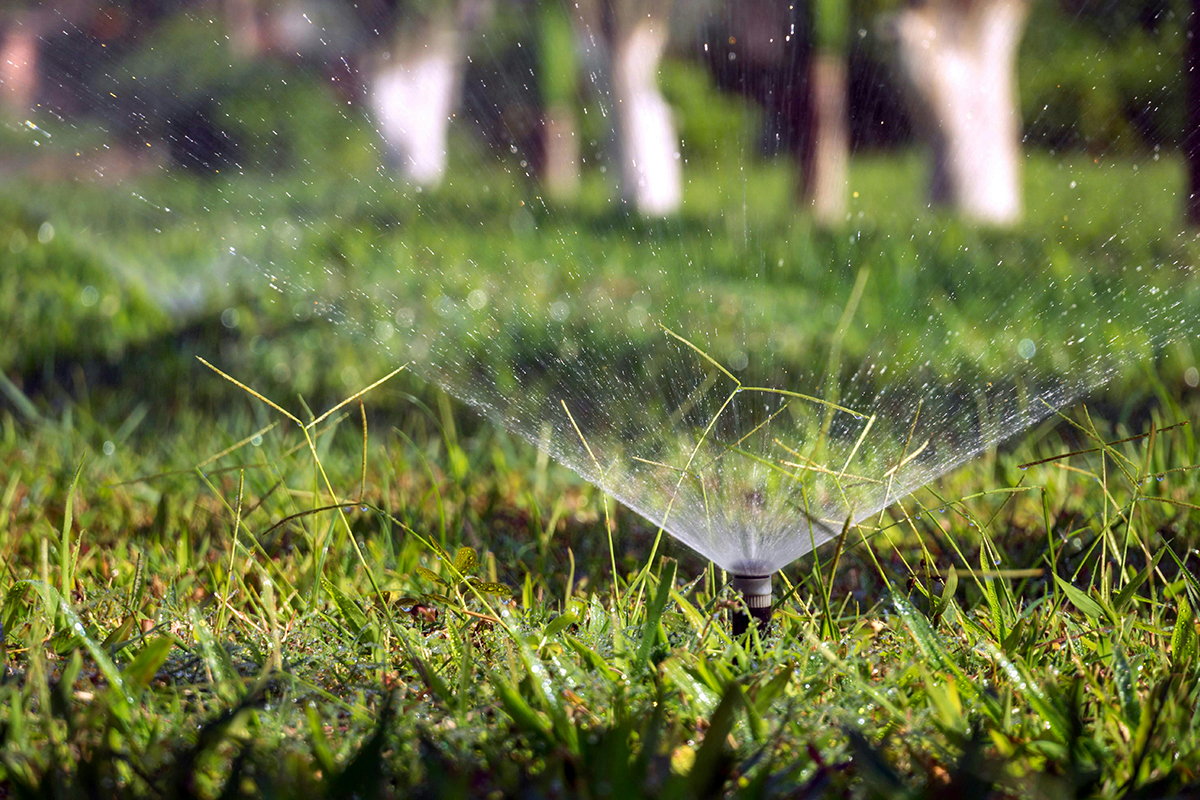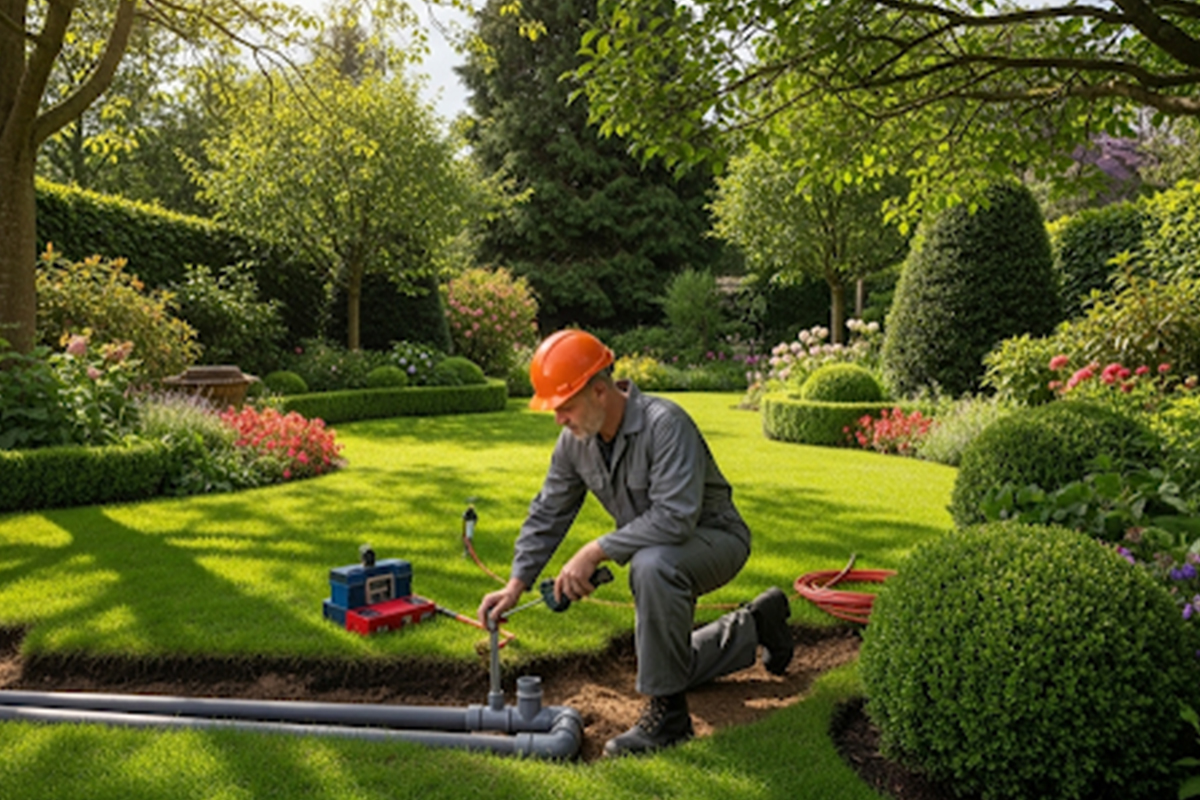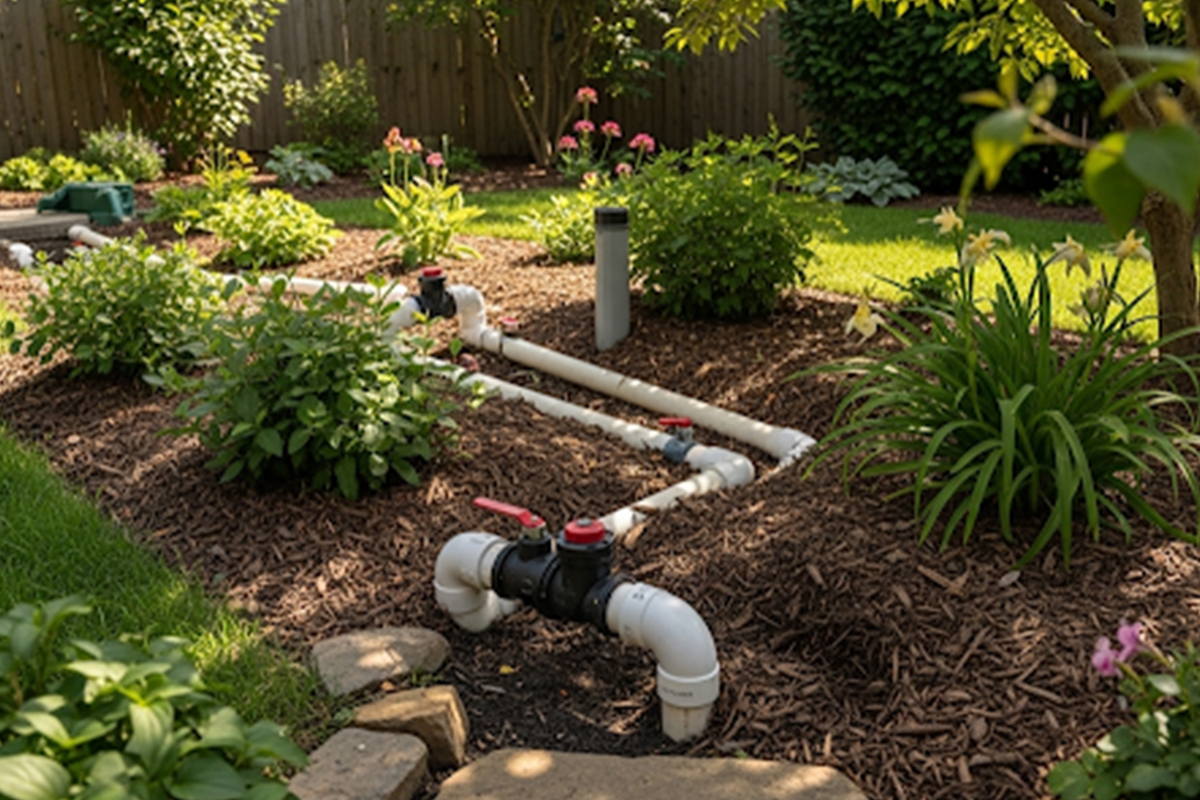Summer brings warmth and outdoor fun. Barbecues, pool gatherings, and garden activities fill the days. Outdoor plumbing is central to these moments. It supplies water for filling pools, cleaning grills, watering plants, and outdoor showers. These systems enable our favourite summer pastimes.
Outdoor water systems often receive less attention than indoor ones. They remain exposed to the elements and frequent use. This guide details practical measures to shield outdoor plumbing. Following these steps helps ensure a smooth, worry-free summer.
Common Outdoor Plumbing Components
Understanding the different parts of your outdoor water system is the first step in protecting it. Each component serves a specific purpose and requires specific care.
- Hose Bibs/Spigots: These are the most common outdoor water outlets. They provide direct connections for garden hoses. Often made of brass or bronze, they can suffer damage from freezing if not drained properly in winter. Regular checks for leaks and secure connections are essential.
- Garden Hoses: Hoses deliver water from the spigot to your plants or cleaning tools. They come in various materials and lengths. Kinks, punctures, and sun exposure can degrade hoses over time. Store them neatly and out of direct sunlight when not in use to extend their lifespan.
- Sprinkler Systems: In-ground sprinkler systems automate garden watering. They consist of pipes, valves, and sprinkler heads. Damage can occur from lawnmowers, foot traffic, or shifting soil. Inspecting heads for blockages and ensuring proper water pressure prevents issues.
- Outdoor Sinks/Utility Tubs: These provide a convenient washing area for garden tools or muddy hands. They are often found on patios or in utility areas. Their drainage systems can become clogged with dirt and debris. Regular flushing and avoiding harsh chemicals maintain their function.
- Pool and Hot Tub Plumbing: Dedicated pipework circulates water, chemicals, and filters for pools and hot tubs. Leaks in these systems can lead to significant water loss and structural damage. Professional inspection before and after the swimming season is highly recommended.
- Water Features (Fountains, Ponds): Decorative water features rely on pumps and circulation systems. Algae build-up, debris, and pump malfunctions are common problems. Regular cleaning and ensuring the pump is free of obstructions will keep these features operating correctly.
Pre-Summer Preparations: Getting Ready for the Season

Before the summer rush, a thorough check of your outdoor plumbing prevents many common problems. Proactive measures save time and money later.
- Thorough Inspection of Hose Bibs: Check for any visible cracks or corrosion on the spigot itself. Slowly turn on the water to ensure no leaks occur around the handle or where the spigot connects to the house wall. A dripping spigot wastes water and can indicate internal valve issues needing repair.
- Test All Sprinkler Zones: Activate each zone of your irrigation system individually. Observe every sprinkler head for proper operation, ensuring full rotation and adequate water spray. Look for clogged nozzles or heads that are stuck or broken, replacing them as needed to ensure even watering.
- Inspect and Clean Gutters and Downspouts: Clear any accumulated leaves, twigs, or other debris from your gutters and downspouts. Blocked gutters can cause water to overflow and pool around your home’s foundation, potentially damaging underground pipes or causing basement leaks.
- Assess Pool and Hot Tub Equipment: Examine your pool pump, filter, and heater for any signs of wear or damage. Check all visible pipes for cracks or leaks, especially at connection points. Ensure all valves are operating smoothly. Consider professional servicing for complex pool systems.
- Clear Outdoor Drains and Grates: Remove any dirt, leaves, or other blockages from outdoor floor drains, such as those on patios or near outdoor sinks. Clear grates allow water to drain freely, preventing pooling and potential overflow that could strain drainage pipes.
- Check Water Feature Pumps and Filters: For fountains or ponds, remove the pump and clean any accumulated debris from its intake screen and impeller. Clean or replace filters to ensure proper water circulation and prevent strain on the pump, which can lead to premature failure.
During-Summer Maintenance
Consistent upkeep throughout the summer helps keep your outdoor plumbing in prime condition. Regular, simple checks prevent minor issues from becoming major repairs.
- Regular Hose Inspection and Storage: Frequently examine your garden hoses for visible signs of wear, such as cracks, bulges, or leaks, especially near connectors. After each use, coil hoses neatly and store them away from direct sunlight and sharp objects to prevent kinking and material degradation.
- Monitor Sprinkler System Performance: Periodically watch your sprinkler system during its operation cycles. Look for changes in water pressure, uneven distribution, or areas that are consistently too wet or too dry. Adjust sprinkler heads as necessary and check for any new leaks in the system.
- Address Leaks Immediately: Even small drips from hose bibs or minor leaks in sprinkler lines can lead to significant water waste and potential damage. Promptly repair any leaks by tightening connections, replacing washers, or calling a professional for more complex repairs to conserve water.
- Keep Outdoor Drains Clear: Throughout the season, regularly sweep or hose down areas around outdoor drains to prevent debris accumulation. This is particularly important after heavy rainfalls or gardening activities. Clear drains prevent water from backing up and stressing the drainage system.
- Mindful Use of Outdoor Sinks and Tubs: Avoid pouring grease, harsh chemicals, or large amounts of dirt down outdoor sinks or utility tubs. Use drain screens to catch food particles or garden debris. Flush drains with water regularly to prevent clogs and ensure smooth operation.
- Routine Pool and Hot Tub Chemistry and Cleaning: Maintain proper chemical balance in pools and hot tubs to prevent corrosion of plumbing components and build-up of scale. Regularly skim debris from the water and clean filters according to manufacturer guidelines to ensure efficient water circulation.
Signs of Trouble and When to Call a Professional
Recognizing the early indicators of plumbing problems can save you from extensive damage and costly repairs. Some issues require expert intervention.
- Unexplained Increase in Water Bill: A sudden spike in your water consumption without a corresponding increase in usage often signals a hidden leak. This could be in underground pipes, irrigation lines, or even a constantly running toilet fill valve that is difficult to detect.
- Pooling Water or Damp Spots: Persistent wet areas in your yard, especially around outdoor spigots, sprinkler heads, or near your home’s foundation, indicate a leak. These saturated spots can lead to soil erosion and damage to your home’s structural integrity over time.
- Decreased Water Pressure: A noticeable drop in water pressure from outdoor taps or sprinkler heads can point to a significant blockage, a major leak in the supply line, or an issue with your water main. This problem can affect all outdoor water activities.
- Visible Pipe Damage or Corrosion: Any visible cracks, bulges, or heavy corrosion on exposed outdoor pipes, especially near connections or valves, are serious red flags. These suggest the pipes are compromised and could burst, leading to major water damage.
- Foul Odours from Drains: Unpleasant smells emanating from outdoor drains, utility tubs, or septic tank areas might indicate a blockage in the drainage system, a compromised sewer line, or an overflowing septic tank, requiring immediate professional assessment.
- Irrigation System Malfunctions: If parts of your sprinkler system consistently fail to operate, have very low pressure, or specific zones do not activate, it points to issues with valves, wiring, or a break in the main irrigation line, which usually requires specialized repair.

Protecting your outdoor plumbing ensures uninterrupted summer enjoyment. Proactive maintenance and prompt attention to issues safeguard your water systems. Following the practical steps outlined will help avoid common problems. Regular checks and timely repairs extend the lifespan of your outdoor plumbing components.
Should you encounter complex issues or require professional assistance, expert help is available. For residential plumbing in the Greater Toronto Area, contact Plumbing Authority: (647) 992-7473.

